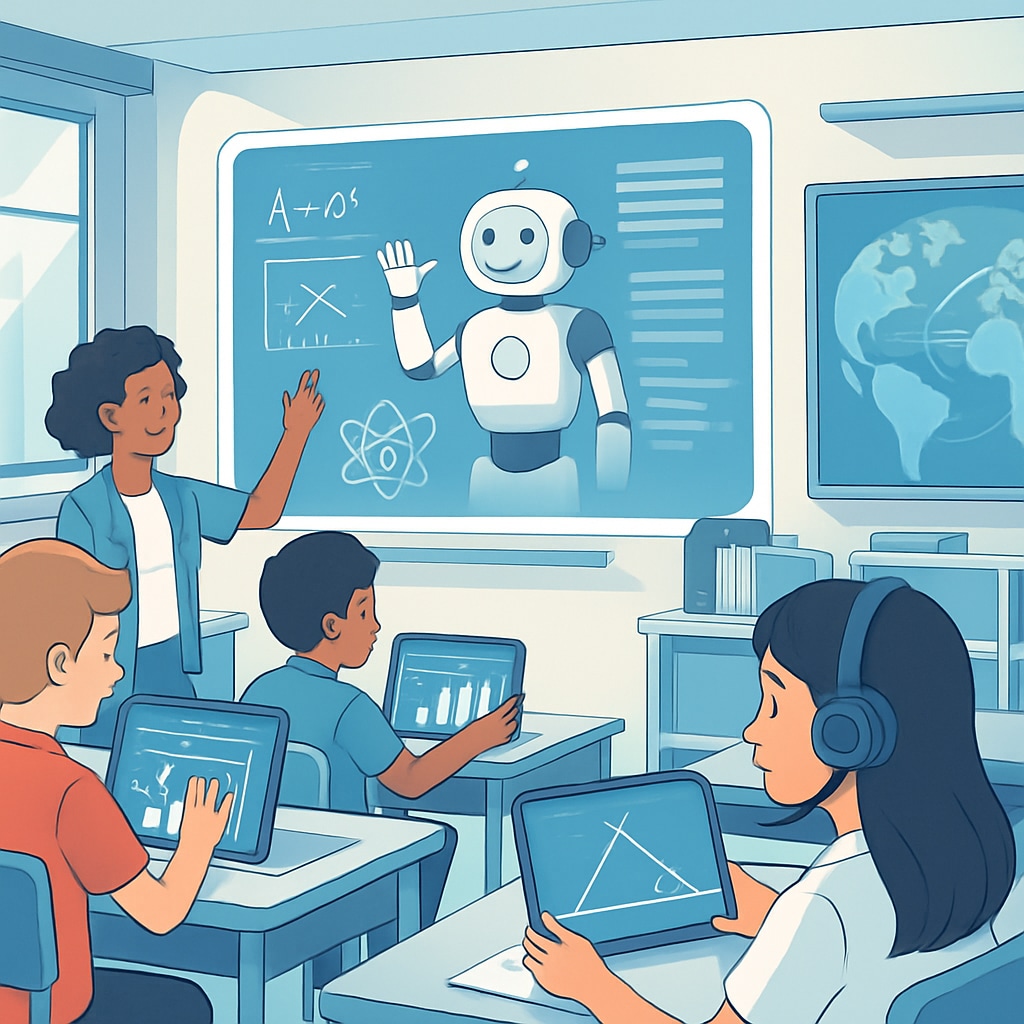The transformative power of artificial intelligence (AI) is reshaping high education and future career prospects, posing both challenges and opportunities for the education system. As AI continues to redefine industries and automate tasks, K12 education must adapt to prepare students for a rapidly evolving job market. This article delves into how foundational education can equip students with essential skills, ensuring they thrive in a tech-driven global economy.
The Changing Landscape of Careers in the AI Era
AI has already begun to disrupt traditional career paths, replacing repetitive tasks with machine learning algorithms and robotics. For example, industries like manufacturing, healthcare, and finance are witnessing automation at an unprecedented rate. According to a report by Britannica, AI-powered systems are increasingly capable of performing complex tasks previously reserved for humans, such as diagnostic analysis and financial forecasting.
This shift has created a demand for unique human skills that AI cannot easily replicate. Creativity, emotional intelligence, critical thinking, and adaptability are emerging as sought-after attributes in the workplace. Therefore, K12 education must focus on nurturing these competencies to prepare students for careers in fields that are less susceptible to automation.

How K12 Education Can Adapt to AI-Driven Futures
To ensure students are ready for the challenges posed by AI, K12 education systems need to adopt innovative approaches. Below are key areas schools can focus on:
- STEM Education: A strong foundation in science, technology, engineering, and mathematics prepares students to engage with AI technologies effectively.
- Digital Literacy: Teaching students how to navigate, analyze, and interpret digital content equips them to interact with AI tools responsibly.
- Soft Skills Development: Schools should emphasize communication, collaboration, and emotional intelligence, which remain critical in human-AI collaborations.
- Ethics in Technology: Introducing ethical considerations related to AI use helps students understand the societal implications of technological advancements.
In addition to curriculum changes, educators can leverage AI-powered tools to enhance learning experiences. For example, personalized learning platforms use AI algorithms to tailor content to individual student needs, promoting better engagement and comprehension.

Preparing Students for Higher Education and Lifelong Learning
As students move beyond K12 education, the role of higher education becomes critical in preparing them for AI-influenced careers. Universities and colleges are increasingly offering specialized courses in AI, data science, and machine learning to meet industry demands. However, the foundation laid during K12 years is equally vital.
For instance, K12 educators can inspire curiosity and problem-solving skills by introducing interdisciplinary projects that combine technology, humanities, and arts. Encouraging students to explore diverse fields fosters adaptability and resilience—qualities that are invaluable in a constantly evolving job market.
Moreover, lifelong learning will become essential as AI technologies advance. Individuals must stay updated with new tools and methodologies to remain competitive. Schools can instill this mindset early by teaching students how to learn independently and adapt to change.
Conclusion: Embracing the Opportunities of AI
While the rise of artificial intelligence poses challenges, it also presents unprecedented opportunities for education and career development. By focusing on critical thinking, creativity, and ethical awareness, K12 education can prepare students to excel in an AI-driven world. As a result, students will not only be ready for higher education but also equipped to navigate the complexities of future career landscapes.
In the age of AI, education must evolve to meet the demands of tomorrow. For educators, policymakers, and parents, the mission is clear: to empower the next generation with the tools and mindset needed to succeed in a world increasingly shaped by technology.


